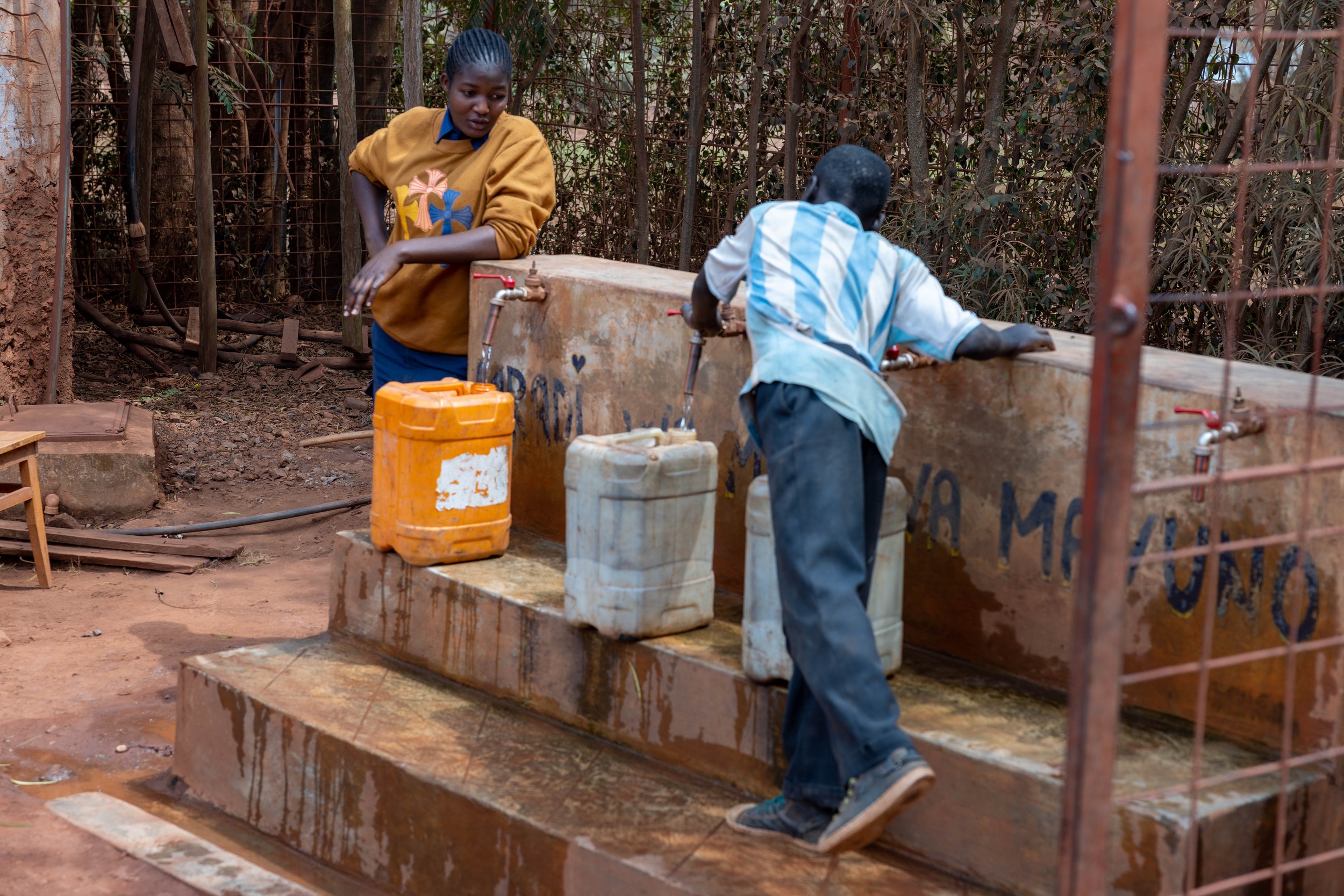Why we construct rain water tanks
/Access to clean water is essential for children's health, education, and overall well-being. In Tanzania, many schools face significant challenges due to the lack of reliable water sources. To address this, Engineers Without Borders Sweden has been constructing rainwater harvesting tanks in various schools, significantly improving students' daily lives.
Improving Educational Opportunities
If schools lack access to clean water it often leads to high rates of absenteeism, as students fall ill from waterborne diseases or spend hours fetching water from distant sources, as it is often the children’s task to fetch water,
By installing rainwater tanks in schools that students have access to safe drinking water on-site, reducing illness and allowing more time for learning. For instance, at Rukole Primary School, the construction of a new water tank has enabled over 1,300 students to attend classes regularly without the burden of water scarcity.
Improving Health and Well-being
The rainwater harvesting systems implemented by EWB-SWE collect and store rainwater, providing a reliable source of clean water for drinking, cooking, and personal hygiene. This initiative has led to a noticeable decline in waterborne illnesses, providing a healthier school environment. In collaboration with local partners, such as The Mavuno Project, EWB-SWE has constructed multiple tanks, benefiting thousands of students and teachers across the region.
Supporting Marginalised Groups
Access to water is particularly crucial for marginalised groups, such as pregnant students and adolescent mothers, who often face expulsion from the traditional school system. EWB-SWE's Tumaini Water Project focuses on providing water solutions for schools dedicated to these young women, ensuring they have the necessary resources to continue their education in a supportive environment.
Community Empowerment and Sustainability
Beyond immediate health and educational benefits, these projects empower local communities by involving them in the construction and maintenance of the water tanks. This collaborative approach ensures the sustainability of the water systems and fosters a sense of ownership among community members.
In summary, the construction of water tanks in Tanzanian schools has had an important impact on children's health, education, and overall well-being, contributing to the development of more resilient and self-sufficient communities
Facts on Rainwater Tanks in Tanzanian Schools
Capacity: Each tank can store up to 30,000 litres of rainwater, ensuring a consistent supply of clean water throughout the year.
Key Benefits:
Improved access to safe drinking water.
Support for hygiene and sanitation practices.
Reduction in waterborne diseases.
Increased school attendance rates, especially among girls.
Number of Tanks Built: Over 30 tanks installed in schools across Karagwe and Kyerwa Districts, directly benefiting 11,000+ students.
Sustainability Features:
Rainwater harvesting from school roofs.
Low-maintenance designs.
Local community involvement in construction and upkeep.
Funding: Supported by donations and financial support from corporations and organisations, grants from foundations plus local donors.
These rainwater tanks are a critical step in addressing water scarcity, improving health, and creating a better learning environment for students in Tanzania.
Contact us if you would like to learn more about our WASH projects in Tanzania and Kenya.






